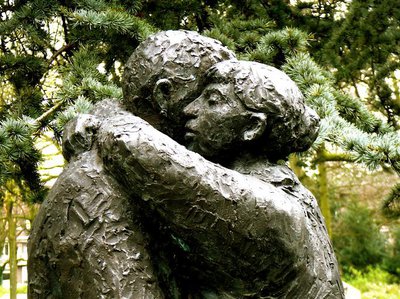Thoughts for the Day
Monday, 29th May 2023: The joy of forgiveness
Confession Psalm 32 Sin Forgiveness God
Reading : Verses from Psalm 32

Happy are those whose transgression is forgiven,
whose sin is covered.
Happy are those to whom the Lord imputes no iniquity,
and in whose spirit there is no deceit.
While I kept silence, my body wasted away
through my groaning all day long.
For day and night your hand was heavy upon me;
my strength was dried up as by the heat of summer.
Then I acknowledged my sin to you,
and I did not hide my iniquity;
I said, ‘I will confess my transgressions to the Lord’,
and you forgave the guilt of my sin.
(Lectionary, New Revised Standard Version)
Thoughts
There is something wonderful about being forgiven. So you broke one of Mum's special bowls by accident, and panic-struck hid it at the back of the cupboard. In due course Mum discovered the breakage and although upset assumed that she had done it herself when putting some other things in the overfull cupboard. Slowly over the days your conscience began to eat at you, and you had to own up. There was silence! But instead of the telling-off you expected, she gave you a cuddle and thanked you for owning up. Days later you managed to get another bowl to match the one broken from the set!
David, the writer of Psalm 32 knows what it is to sin, and then to keep silent. He says his "body wasted away" and God's hand "was heavy" on him. His conscience gnawed away at him until he confessed to God. Unexpectedly, instead of being rebuked, there was joy to find he was forgiven.
Sometimes we don't even know we have strayed from God's path. Sins like pride, idleness, and gluttony can pass us by, and we need to ask God's help to teach us the truth about ourself. Then will we be truly joyful!
Prayer
Heavenly Father,
teach us to examine ourselves minutely
for evidence of sins that we prefer to ignore.
May we be honest about failures
and own up to You,
asking for Your forgiveness.
Then may we be happy once more.
Keep us from straying intentionally
or unintentionally again,
and help us to be honest with ourselves
and with You in the future.
Amen.
You might like to look at the experiences of four fictional churches dealing with the penitential part of the Common Worship in their services. It might help us all to look at worship in our own church and stir some rethinking about making this section of our service more meaningful, whatever worship book we use: